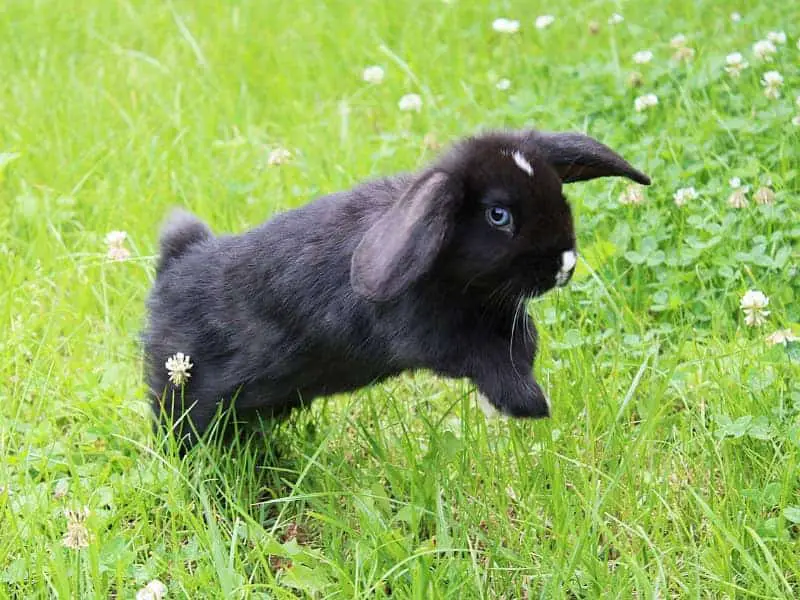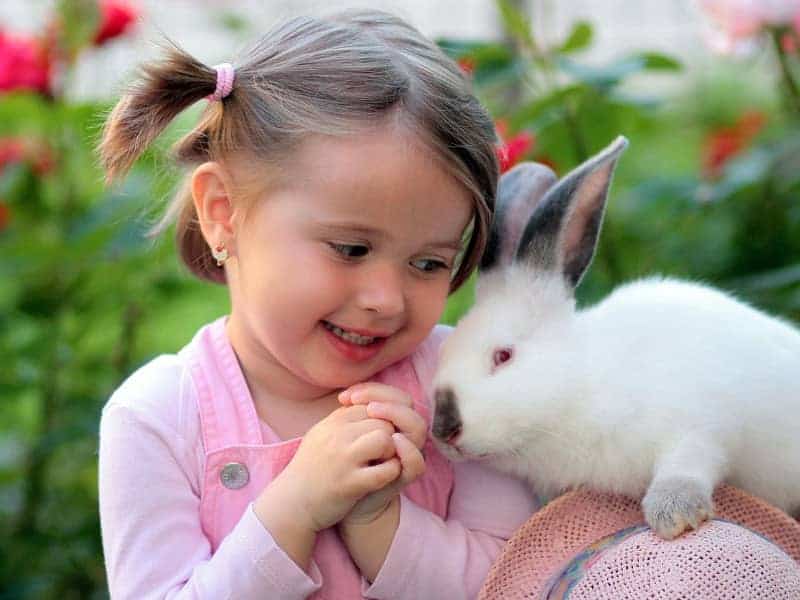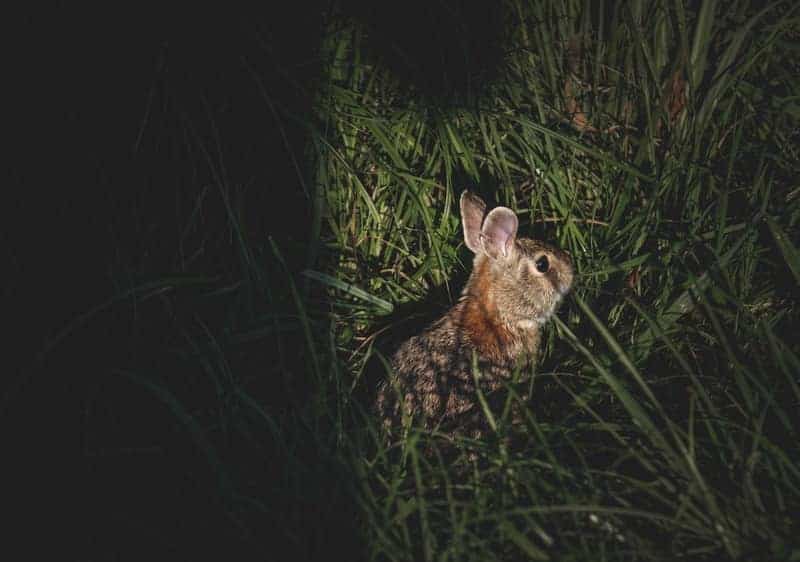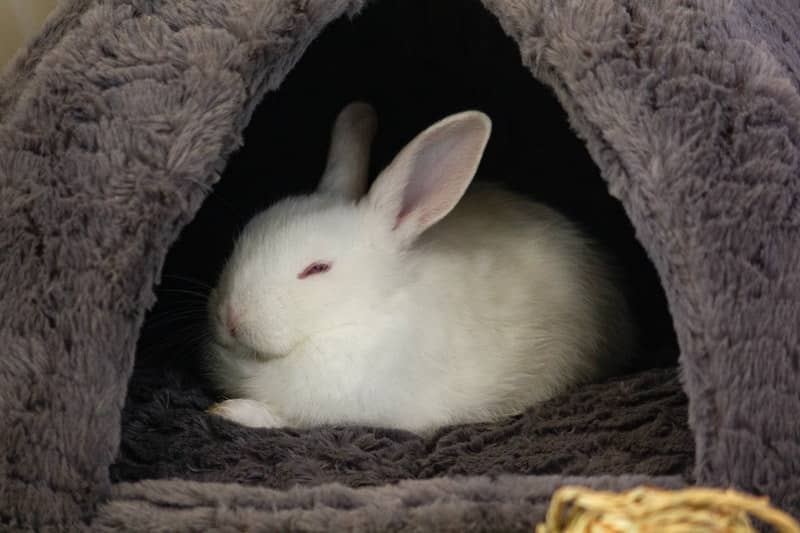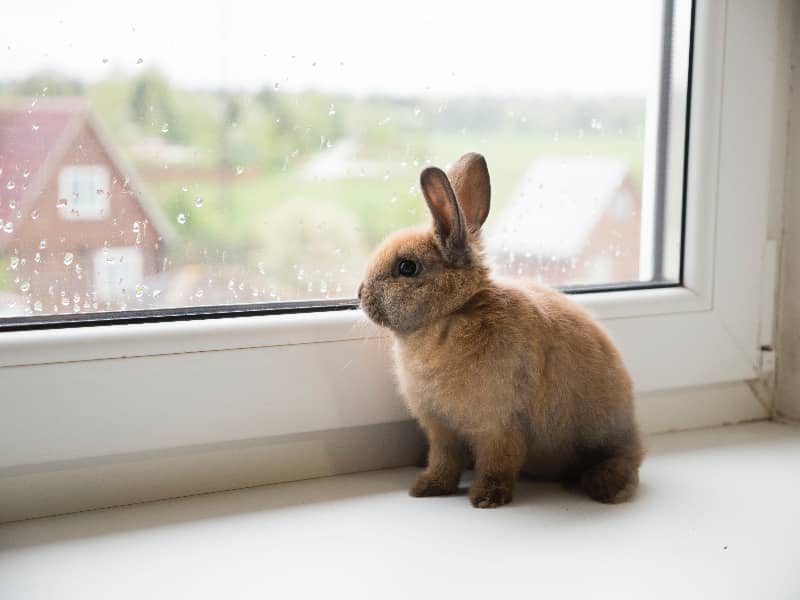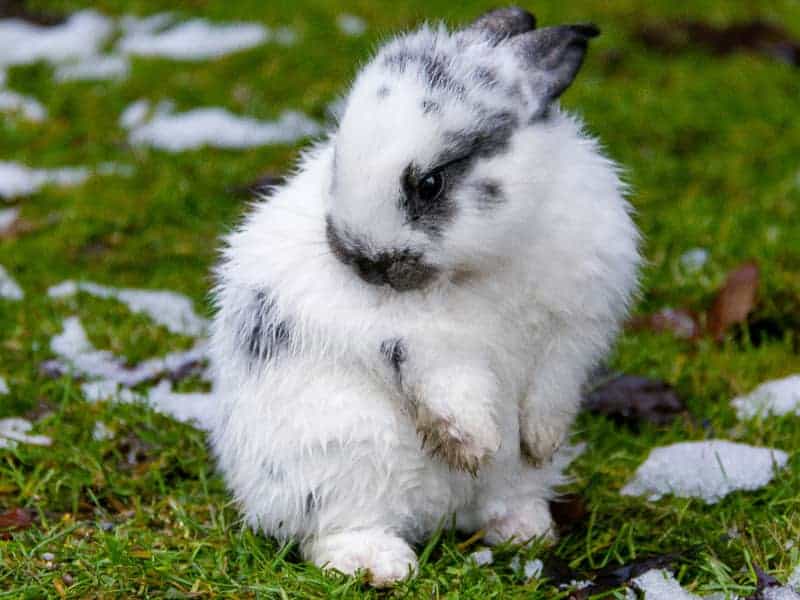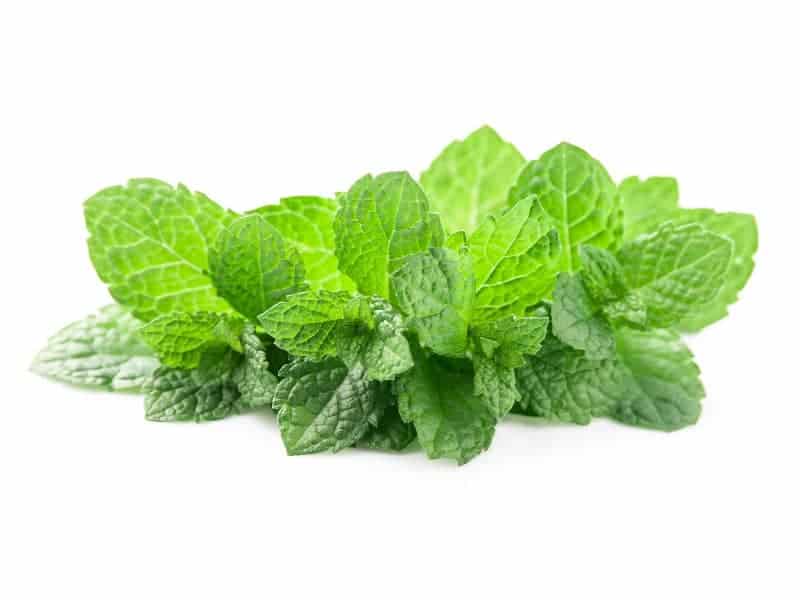
Are rabbits allowed to eat mint?
Dear Rabbit Friends, Today's topic is certainly one that belongs on a list of most frequently asked questions: "Are rabbits allowed to eat mint?" Have you ever thought about whether mint might be a suitable addition to your little friend's diet? Or perhaps you've worriedly wondered if this plant is even safe for your rabbit?
Well, we are here to answer all these questions. Come with us on an exciting journey of discovery through the world of rabbits and mint.
- Are rabbits allowed to eat mint?
- Why mint?
- Mint and rabbit: An overview
- The health benefits of mint
- Important tips for feeding mint
- Where can I find safe mint for my rabbit?
- Mint and other herbs
- How to prepare mint for your rabbit
- Watch for changes in your rabbit's behavior
- Fresh mint against dried mint
- Mint in the wild
- Mint varieties and their effects on rabbits
- Rabbits and human food
- Conclusion: Are rabbits allowed to eat mint?
Why mint?
Before we jump right into the details, let's pause for a moment and consider why you're even thinking about feeding mint to your rabbit. Maybe you have a lush growing mint bush in your backyard, or maybe you just have a pack of mint sitting in your fridge and are wondering if you can share it. Mint is, after all, a common and popular herb found in many homes and kitchens. But is it also good for rabbits?
Mint and rabbit: An overview
Mint is a plant species in the labiates family. There are many different types of mint, but the most common are peppermint and spearmint. They are known for their strong, refreshing flavor and fragrance. But how does mint affect rabbits?
Let's get right to the good news: Yes, rabbits can eat mint. Mint is safe and non-toxic for rabbits. This is because mint does not contain any dangerous toxins that could harm your little friend.
The health benefits of mint
Not only is mint safe for rabbits, it can actually be healthy. Mint contains various nutrients such as vitamins A and C, as well as some B vitamins. In addition, mint also contains fiber, which is important for the digestion of rabbits.
There are also reports that mint has antibacterial and antimicrobial properties, which could make it a healthy addition to your rabbit's diet. Some rabbit owners even report that their animals especially love the refreshing mint.
Important tips for feeding mint
Although mint is safe and healthy for rabbits, there are a few things you should keep in mind. First, mint - like any other vegetable or herb - should only be fed in moderation. A balanced diet for a rabbit should consist mainly of hay, which provides the necessary fiber for healthy digestion. Vegetables and herbs, including mint, should only serve as a garnish.
Secondly, it is important to note that not all rabbits like mint. Each rabbit is unique and has its own likes and dislikes. It's possible that your rabbit doesn't like mint, and that's perfectly fine. Don't force your little friend to eat something he doesn't like.
Third, if you are introducing mint into your rabbit's diet for the first time, do it slowly. Start with small amounts and watch how your rabbit reacts. If there are signs of discomfort or indigestion, stop feeding mint and consult a veterinarian.
Where can I find safe mint for my rabbit?
It is important to make sure that the mint you feed your rabbit is safe. This means that it should be free of pesticides, chemicals and other potentially harmful substances. If you feed mint from your garden, make sure you don't use any chemicals or pesticides.
If you buy mint from the supermarket, choose organic products if possible to reduce the risk of chemicals. Also, be sure to wash the mint thoroughly before giving it to your rabbit.
Mint and other herbs
Mint is not the only herb you can feed your rabbit. There are many other herbs that are safe and healthy for rabbits. These include parsley, cilantro, dill, and basil, to name a few. As with mint, these herbs should only be fed in moderation and should not make up the bulk of your rabbit's diet.
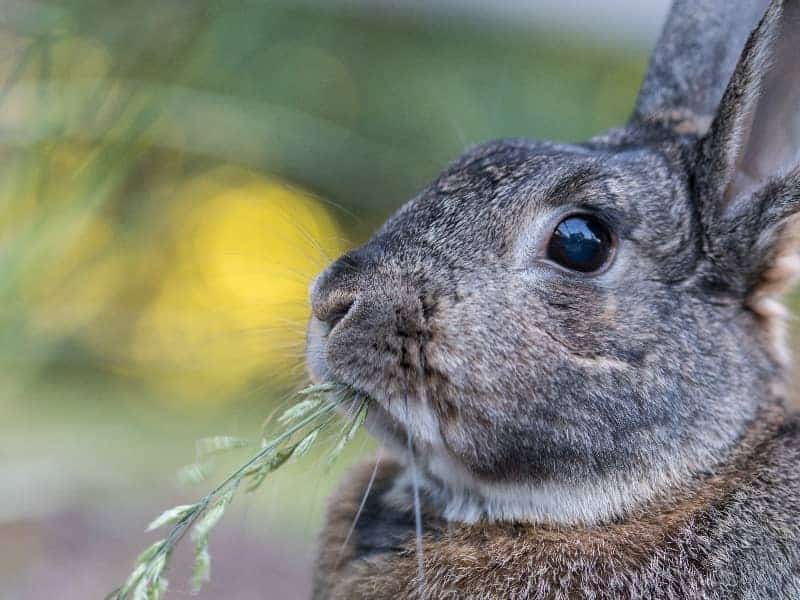
How to prepare mint for your rabbit
If you have mint at home, whether fresh from the supermarket or your own garden, it is important to know how to properly prepare it for your rabbit. First, you should wash it thoroughly under running water to remove dirt and potential pesticide or fertilizer residues.
After washing, the mint can be either whole or cut into smaller pieces. Depending on how big your rabbit is or how much it likes to eat mint, it may be better to make smaller pieces. It is important that you always use fresh mint and remove any wilted or brown leaves, as these can contain a buildup of bacteria.
Watch for changes in your rabbit's behavior
While mint is generally safe for rabbits, it is always a good idea to monitor for changes in your rabbit's behavior or health after introducing new foods into their diet.
Symptoms such as lethargy, diarrhea, decreased appetite, or changes in bowel movements may be signs that something is wrong. If you notice such changes, you should stop feeding mint immediately and contact your veterinarian.
Fresh mint against dried mint
You may be wondering if dried mint might be a good alternative to fresh mint. Dried mint is usually safe for rabbits, but can be more intense than fresh mint due to the concentration process during drying.
Therefore, it is advisable to feed smaller amounts of dried mint than fresh. As always, it is important to monitor your rabbit and make sure it does not have any negative reactions.
Mint in the wild
It might be interesting to consider the natural context of the relationship between rabbits and mint. In the wild, rabbits tend to eat a variety of plants depending on what is available in their environment. This can include mint if it is growing in its natural environment. This helps confirm that mint is a natural and safe food source for rabbits.
Mint varieties and their effects on rabbits
We have already established that mint is usually safe for rabbits. However, it's worth noting that there are many different varieties of mint, including peppermint, spearmint, catnip, and even chocolate mint. Each of these varieties has a unique flavor, and while all are considered safe for rabbits, your pet may like some varieties more than others. Experimenting with different varieties of mint can be an exciting way to vary your rabbit's menu and find out his preferences.
Rabbits and human food
Finally, it may be helpful to look at the issue of rabbit feeding in a broader sense. Rabbits have very different digestive systems compared to humans. While mint is safe for both of us, there are many foods that humans enjoy that are not safe for rabbits. These include some of our favorite snacks such as chocolate, cookies, bread and dairy products. This is an important point to remember that not everything we eat is safe for our little friends.
Conclusion: Are rabbits allowed to eat mint?
In summary, rabbits are safe to eat mint. Mint can be a healthy and delicious addition to your little friend's diet. However, remember to feed mint only in moderation and wash it thoroughly before giving it to your rabbit. As with everything else in your rabbit's diet, moderation is key. And don't forget to always keep an eye on your rabbit's well-being and consult a veterinarian if needed.
I hope this article has answered your questions about "Can rabbits eat mint?". Now you are well equipped to provide your rabbit with a safe and varied diet.
Author

-
Garden animal - A life with nature
Welcome to my animal blog! My name is Dirk and I am happy to take you on my journey through the fascinating world of animals and gardening.
Born 54 years ago, I have had an insatiable curiosity for the animal world around me since childhood. Although I have moved professionally in other industries, my true passion has always been animals and nature. It is remarkable how a small garden has become such an important part of my life.
Many of my fondest memories are associated with the animals that share our home. Whether it's the curious squirrels that scurry across the trees in the morning, the colorful variety of birds that visit our feeders, or the busy bees and butterflies that pollinate our flowers, every moment with them is invaluable to me.
This blog is my contribution to share my experiences, discoveries and insights with like-minded people. Here I will share stories of unforgettable encounters with animals, give tips on gardening and creating wildlife-friendly habitats, and take you on my journeys through nature.
Thank you so much for being here!
Cordial,
Dirk aka garden animal
Last posts
- 27. February 2024PetsVeganes Hundefutter – Grün und Gesund?
- 18. January 2024ChickensOregano für Hühner
- November 27, 2023HamsterDiurnal hamsters
- November 24, 2023HamsterHamster hammock

